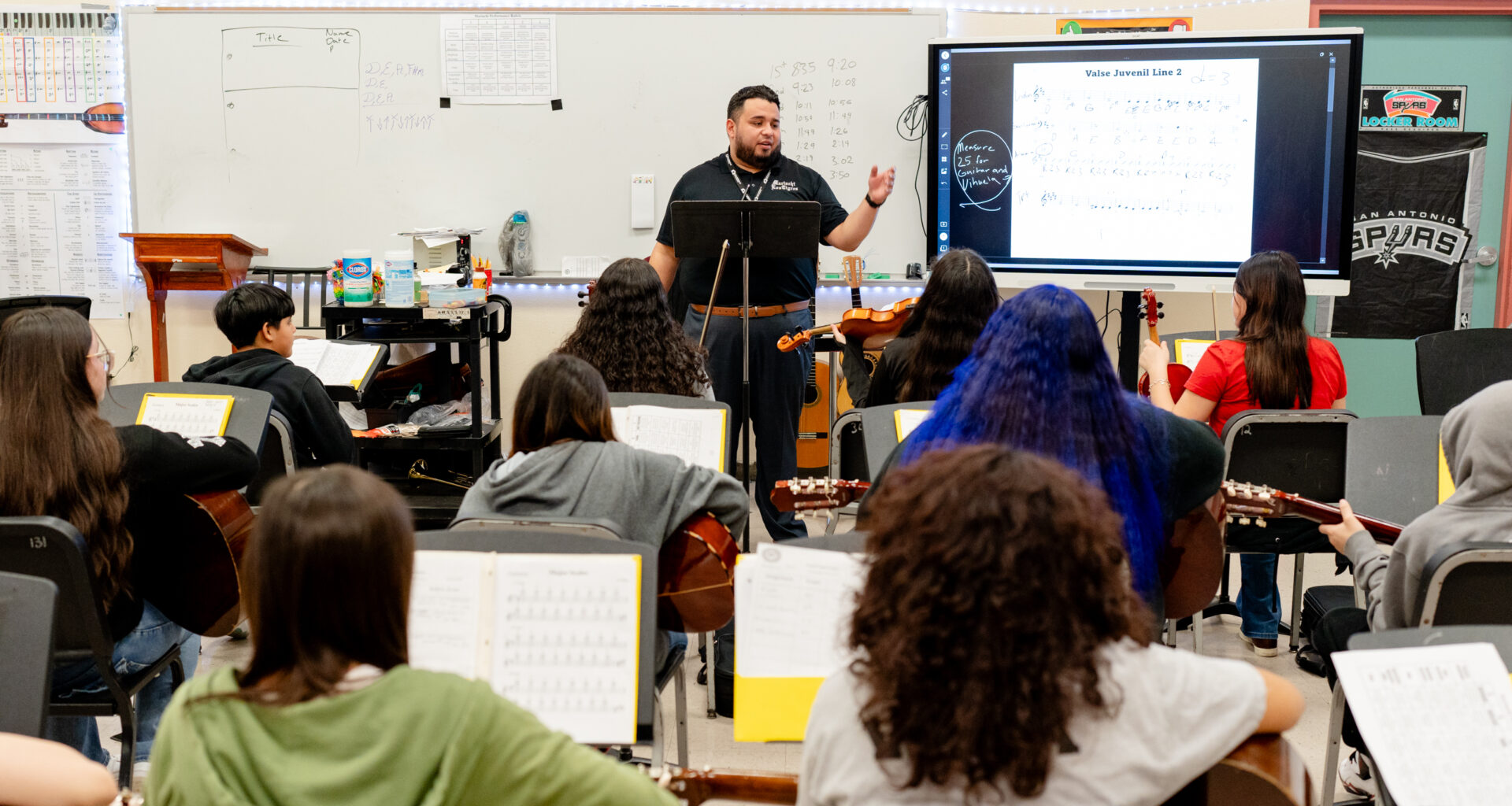After a yearly review of its in-district charter schools, San Antonio Independent School District officials are considering placing two schools on probation and revoking the in-district charter status of another.
Known as 1882 partnerships, in-district charters are a way for school districts to get extra funding from the state if a district partners with a charter school network, higher education institutions, nonprofits or other government entities.
These partnerships are supposed to promote innovative school models, and are often implemented in low-performing schools to help them turn around but not always.
Texas school districts can also create their own in-district charters schools without an outside entity, a complex process SAISD has taken advantage of with at least one campus, giving it access to more funds under Senate Bill 1882.
How SAISD’s in-district charter schools measured up
SAISD grades its 1882 schools on three metrics — academics, organizational health and financial health — to determine whether to renew the 1882 status or not.
Based on results from the 2024-25 school year, SAISD’s administration is recommending placing Woodlawn Academy and Woodlawn Hills Elementary on probation, both of which operate under the Texas Council for International Studies.
For the 2024-25 cycle, Woodlawn Academy received an ‘F’ rating from the state and Woodlawn Hills scored a ‘D,’ but the district requires at least a ‘C’ for 1882 partners to be in good standing for contract renewal.
TCIS operates four other schools at SAISD, all with ‘C’ or ‘B’ ratings.
Woodlawn Hills was on probation last year, but the school saw significant growth from the 2023-24 school year to 2024-25, going from a 51, or F-rating, to a 68.
“[The board] could have made the decision to revoke them,” said Shawn Bird, deputy superintendent of school leadership and partnership services at SAISD. “Because they are showing improvement, we wanted to give them more time.”
Woodlawn Hills and Woodlawn Academy will now undergo quarterly progress monitoring with the charter operator and the school administrators.
SAISD staff also recommend that the school board revoke 1882 status at Edgar Allan Poe STEM Dual Language Middle School, a campus the district operates itself. Poe has gotten an F-rating from the state three years in a row, requiring a “turnaround” plan.
The district plans to implement a school redesign, a very intensive and strict model, at Poe for the next school year, which would qualify for the campus for additional funding from the state even though it would no longer get 1882 dollars.
One of SAISD’s 1882 partners, the University of Texas at San Antonio, plans to relinquish its hold of Graebner Elementary School after the current school year ends. The school was already on probation, since Graebner has gotten F-ratings for the past three years. The district plans to implement a redesign model for the next school year.
UT San Antonio operates three other SAISD campuses under 1882 contracts, all of which have passing ratings from the state.
The district’s school board won’t vote on final renewals or revocations until December. Until then, 1882 schools with probationary or recommended revocation status will hold meetings with parents in October and November.
SAISD leads state in 1882 partnerships
Currently, SAISD has over 20 in-district charter partnerships, the most of any school district in Texas, accounting for about a third of its enrollment. Half of students enrolled at 1882 schools are students from outside the district’s boundaries, a growing number despite SAISD’s overall declining enrollment.
SAISD could soon have more in-district charters.
During the summer, SAISD put out a call for in-district charter proposals that specifically target low-performing elementary and middle school campuses or have “innovative” school models.
After the latest round of school ‘A-F’ ratings, SAISD placed 18 failing campuses on a priority list for turnaround plans in an effort to improve academic performance and avoid further probing from the state. Most of those campuses are elementary and middle schools.
The 1882 school review process also sparked discussion amongst the school board about what the district is doing to support its traditional neighborhood schools, which support a majority of the district’s economically disadvantaged students.
A disproportionate number of the district’s “quality seats,” meaning seats at schools with ‘A’ or ‘B’ ratings, are in schools with 1882 partnerships compared to schools without 1882 status.
“We have to have both school choice and high-performing neighborhood schools,” said vice president Christina Martinez. “We serve all different kinds of families.”
